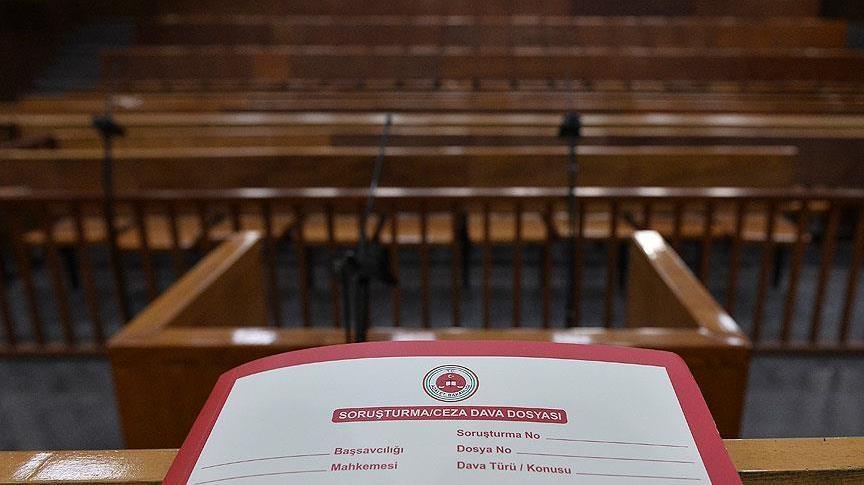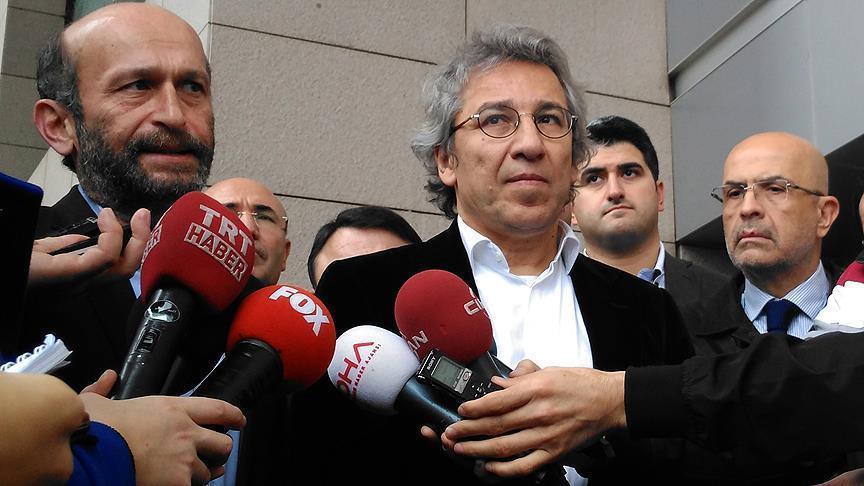Can Dundar. |
|---|
14-apr-20 |
6 January 2020: The trial of Cumhuriyet daily’s former Editor-in-Chief Can Dündar and former responsible editor Abbas Yalçın on the charge of “insulting the president” over a news report published on 11 August 2015 resumed on 16 January 2020 at Istanbul’s 2nd Criminal Court of First Instance. P24 monitored the 12th hearing, where Yalçın was in attendance. Addressing the court, Yalçın asked the judge to dismiss the case. The judge ruled to lift the arrest warrant against Dündar that had been issued as part of this case on the grounds that his defense statement would not contribute to the case file. Issuing her verdict at the end of the hearing, the judge ruled to dismiss the case, citing the expiry of the four-month statute of limitations in Article 26 of Turkey’s Press Law. The trial of Cumhuriyet daily’s former Editor-in-Chief Can Dündar and former responsible editor Abbas Yalçın on the charge of “insulting the president” over a news report published on 11 August 2015 resumed on 5 December 2019 at Istanbul’s 2nd Criminal Court of First Instance. Yalçın told the court that charges were pressed after the expiry of the four month statute of limitations in Turkey’s Press Law and asked the court to dismiss the case. Issuing an interim decision, the court ruled to wait for the execution of the arrest warrant against Dündaar and adjourned the trial until 16 January 2020.
The 11th hearing in a trial where Can Dündar, the former editor-in-chief of Cumhuriyet newspaper, is being prosecuted for participating in a campaign to lend support to the Özgür Gündem newspaper took place on 28 November 2019 at the 22nd High Criminal Court of Istanbul. Dündar is accused of “printing or publishing statements that legitimize the methods of a terrorist organization” and “disseminating propaganda for a terrorist organization”in the case. Ruling to wait for the execution of the arrest warrant issued against Dündar and the return of the letter from the court abroad, the court adjourned the trial until 21 May 2020. 31 October 2019: The retrial of journalist Can Dündar, the former editor in chief of Cumhuriyet daily, over the newspaper’s 2015 coverage of the alleged transfer of weapons to insurgents in Syria on trucks operated by Turkey’s National Intelligence Organization (MİT), resumed on 31 October 2019 at the 14th High Criminal Court of Istanbul. Dündar is accused of “espionage” in the retrial. Two other case files against Dündar on other charges were also merged with this case in February. Issuing an interim ruling at the end of the hearing, was closed to the public, the court decided to wait for the response from German judicial authorities concerning Turkey’s extradition request for Dündar and set 19 March 2020 as the date for the next hearing. 18 July 2019: One of numerous ongoing trials against journalist Can Dündar resumed on 18 July 2019 at a criminal court in Istanbul. Dündar is accused in this case because he participated in a 2016 campaign for solidarity with the shuttered pro-Kurdish newspaper Özgür Gündem. The 22nd High Criminal Court of Istanbul ruled to wait for the execution of the arrest warrant against Dündar and adjourned the trial until 28 November 2019 6 February 2019: Can Dündar’s file separated in “MİT trucks case”
|
| |
 Istanbul Chief Public Prosecutor Hadi Salihoglu has said the recent arrests of two Turkish journalists of local Cumhuriyet daily has nothing to do with the issue of press freedom in Turkey.
Istanbul Chief Public Prosecutor Hadi Salihoglu has said the recent arrests of two Turkish journalists of local Cumhuriyet daily has nothing to do with the issue of press freedom in Turkey. Two Turkish journalists accused of espionage and aiding a terrorist organization have been sent to prison by a court in Istanbul late Thursday.
Two Turkish journalists accused of espionage and aiding a terrorist organization have been sent to prison by a court in Istanbul late Thursday.




